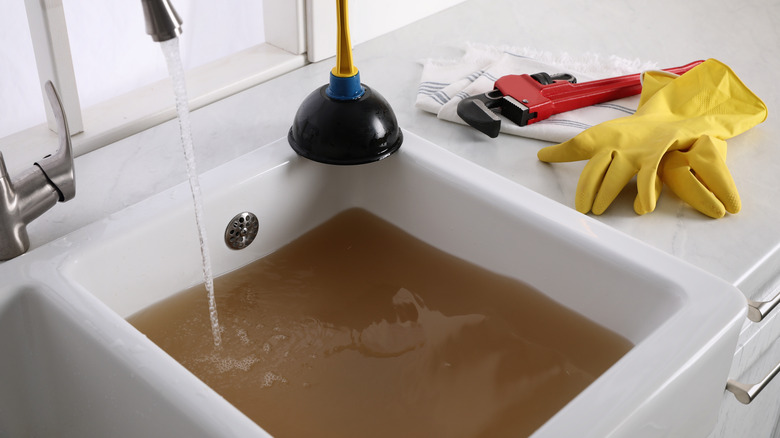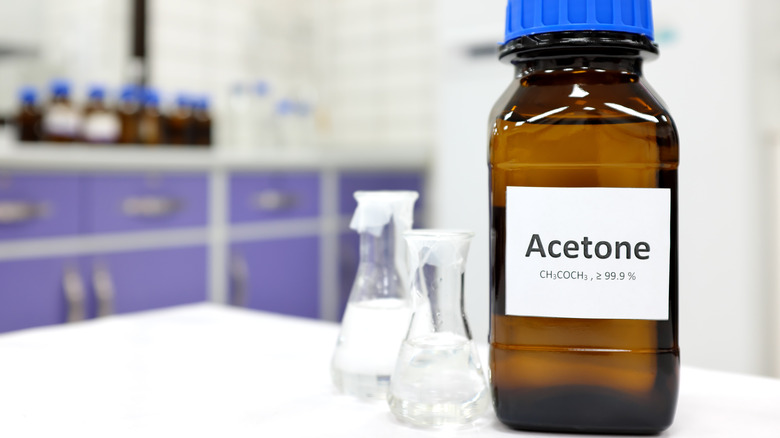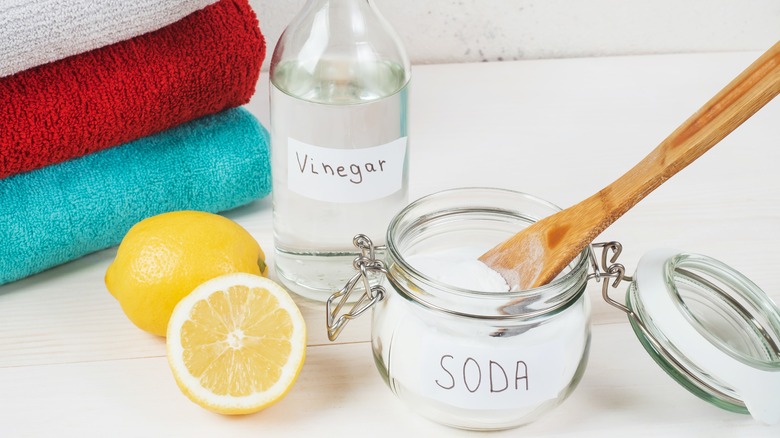Why You Should Never Use Acetone To Unclog A Drain
Having a clogged drain is a major headache that should be taken care of quickly to prevent the development of a strenuous migraine. The signs are subtle at first; you'll notice that the water is flowing down slower than usual. Then, all of a sudden, it's taking even longer, and now putrid smells are emitting out of the drain. And that's not even the worst of it. If left alone for even longer, whatever is blocking your drains can become so bad it eventually leads to a leak or burst pipe. So, what could've been an easy fix has suddenly become a $500 repair.
Some people may believe acetone is the unclogging solution they need. Acetone is a liquid that is typically used to break down different types of substances, such as grease, paint, and varnish. So, it's unsurprising that some homeowners may trust this solution to eliminate the gunk from their drains. However, we urge you never to resort to this solvent, and we'll reveal all the reasons why.
The dangers of acetone
Although acetone is strong enough to dissolve a variety of substances, that doesn't mean you should start pouring it down the drain. Yes, it will likely break down whatever is clogging up your pipes, but it can also cause severe damage. For instance, many plumbing systems are made out of plastic, which is a material that can be easily melted by this solvent (via ReAgent Chemical Services). Additionally, this substance is also flammable and is capable of causing an explosion within your pipe system if handled poorly. If either of these issues were to occur, you'll end up eating costs on damages you've created yourself.
Also, dumping acetone down the drain can create a disastrous situation for the environment. As this chemical makes its way through your pipes and to the wastewater treatment facility, it can avoid the filtration system and land outdoors, where it may harm animals and plants and damage crops meant for human consumption.
Acetone alternative
So, if using acetone isn't the best option to fix stubbornly clogged drains, then what is? Well, you likely already have the necessary ingredients; baking soda and white vinegar. When these common household items are combined, they cause a chemical reaction that can break down the various substances that have formed together to create a nasty clump. However, before you begin, you'll need to boil a pot of water and dump it down the affected drain.
Once you've done this, mix 1 cup of water and 1 cup of vinegar and pour it down the drain, followed by 1 cup of baking soda. Then, place a cover over the drain and let the cleaning solution sit for about 5 to 10 minutes. Once time is up, you'll need to pour down another pot of boiling water to wash everything away. The boiling water adds pressure to the gunk and ultimately pushes it down with the help of gravity.


